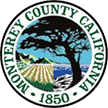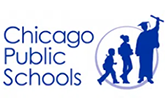Cal Interpreting & Translations (CIT) offers Algonquin interpreters and translators with legal, medical, and specialty experience, including criminal and civil matters, employee meetings, engineering, patent cases, labor disputes, immigration, and more.
Although based in Los Angeles, CIT offers comprehensive Algonquin language services including interpretation, translation, and transcription, 24 hours a day, 7 days a week, worldwide. Our interpreters and translators are native speakers who have been screened, certified, provided credentials, field tested, and kept up to date with developments in both English and Algonquin languages through means such as lectures, conferences, and travel. CIT’s Algonquin language interpreters and translators possess in depth knowledge of the Algonquin language, as well as of the culture and history of the Algonquin people, allowing them to provide informed and complete interpretation and translation.
The Algonquian language originates from Canada and the US, particularly areas such as New England, North Carolina and in the Great Lakes region to the Rocky Mountains. The language is still spoken in several parts of southern Quebec and Ontario, where the Algonquin tribe lived. Most Algonquin speakers today live in Quebec. The origin of the name is unknown but it is believed to be a Mohawk name for “bark-eater.” Many linguists believe that the name came rom the native Malisset word “elakanqin” which means, “they are good dancers.” This source is unknown.
There are different variations of the term Algonquin, such as Algonquian. The latter is used to group multiple languages of the same origin. The language “Algonquin” is different from other native languages within the same family. Algonquin is found within the Algonquian family of languages. “Algonquin” is only used when referring to the language.
Algonquian people are best known as the largest Native American language family group in North America. With that came a lot of confusion with that name and has caused a lot of misinformation to be spread. Algonquin refers to the tribe of Native Americans. The Algonquin and Objiwa are closely related and many believe that Algonquin is a dialect of Ojibwa. Speakers of both these languages can often times understand one another due to the closeness of the languages, although this is not the case for all languages in the Algonquin family.
Actually, the family of all the languages is more formally known as “Algic.” Algic includes Wiyot and Yurok languages along with all of the Algonquian languages. Within the Algonquin family, there are various groups that the languages are categorized into such as Eastern, Central and Plains Algonquian.
Like many other Native American languages, Algonquin is a verbal language in that most of the language consists of verbs instead of having words for tenses or prepositions. These are often times incorporated in the verb itself. Additionally, complex sentences that are said in many words in English can be said in one single word in Algonquin.
Historically speaking, the Algonquin tribes have been typically grouped together. Dating back to the 1400s, the native Algonquins were located in the upper part of the St. Lawrence Valley in Quebec, Canada. In 1603, the first French Settlement came along the St. Lawrence river, making this the first time the French came in contact with the Algonquin tribe. The French helped with mitigating tribal conflict, particularly between the Iroquois tribe, probably for the French interest in fur trade. When the British took control of North America, many tribes signed a treaty to remain neutral between any French and British conflicts.
• Massachusetts, Connecticut, Illinois, Michigan and Wisconsin have names in Algonquian origin.
• The capital of Canada, Ottawa, is named after the Algonquian people, the Odawa (Ottawa) people.


No matter what your needs may be, we can and are ready to assist you now. We have translators and interpreters standing by 24/7.

CIT's interpreter is such a rockstar, and it’s so great to have him as a lead interpreter for our Board meetings. About Our Interpreters 
Thank you for always being able to handle emergency interpreting assignments with ease. About Urgent Requests 
Thank you for always being able to handle emergency interpreting assignments with ease. About Urgent Requests 
Your translation rates are more competitive than other language service providers I used in the past. About Pricing 

Professionalism matters at CIT. We respond to request inside 24 hours.







